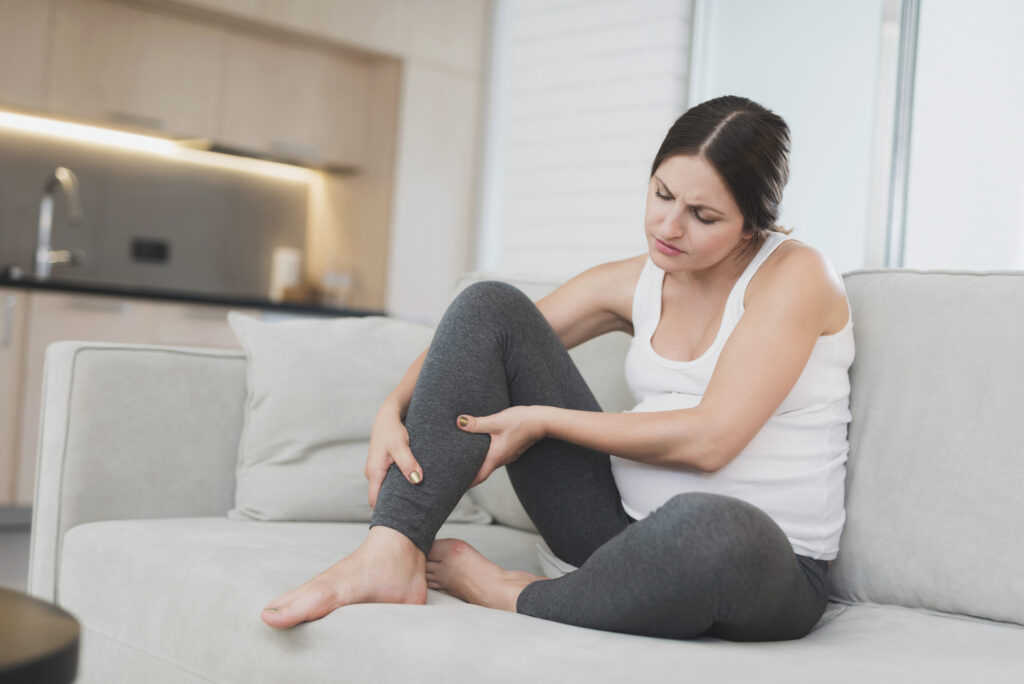
Pregnancy means an overwhelming number of changes for your body. Some you expect, like shiny hair and a growing belly. But some you might not expect, like bulging, painful varicose veins.
As your pregnancy progresses, you may notice the presence of varicose veins on your legs or other areas. It turns out that varicose veins are extremely common in pregnancy. Keep reading to learn more about what to do when you suffer from varicose veins during and after your pregnancy.
About Varicose Veins
Varicose veins are large, bulging veins that you can often see on the surface of the skin. Other than making you feel self-conscious about how they look, varicose veins can be painful, causing aching and throbbing feelings in the affected area. This discomfort can be worse if you sit or stand for a long while.
Varicose veins happen because valves inside the vein fail to work optimally and keep blood flowing the right direction. The vein can become twisted and swollen as blood pools inside. As this occurs, the walls of the vein will stretch and weaken as well. This results in twisted, painful, visible veins.
Varicose veins sound scary, but most of the time, they are not dangerous. However, even in nonpregnant patients, we recommend patients get their varicose veins evaluated. In some cases, they can indicate a more serious problem, and if left untreated, they can become more painful or even cause additional problems like skin ulcerations.
How Does Pregnancy Affect Varicose Veins
Varicose veins affect up to half of pregnant women. This includes a number of women who did not suffer from vein issues before pregnancy. While genetics plays a big role and weight gain can contribute to varicose veins, there are a few other contributing factors.
First, when you are pregnant, your blood volume increases by approximately 45%, on average. Additionally, hormonal changes can result in weakened vein walls. Lastly, as your baby grows, his or her weight can put pressure on blood vessels and disrupt normal blood flow to the lower body.
On rare occasions, varicose veins can signal bigger problems. If you notice bleeding or ulcers from the affected area or redness, swelling, and significant pain, talk to your doctor or see a vein specialist for an evaluation. Evaluation methods such as ultrasound are not harmful to you or your baby.
What You Can Do for Varicose Veins During Pregnancy
There are a few lifestyle changes you can make that may help prevent or diminish your varicose veins while you are pregnant. For example, try not to sit or stand in the same place for long stretches of time. If possible, take a break every 30 minutes. Even a short walk will be beneficial. Of course, talk to your doctor about the right amount of activity for you. Here are some other things you can do to help with varicose veins:
- Stay Hydrated
- Don’t cross your legs when you sit
- Consider compression stockings
- Elevate your legs
- Stay away from heels and tight-fitting shoes
Will Varicose Veins Go Away?
Varicose veins may fade after pregnancy, but sometimes they do not go away entirely. In addition, if you have more pregnancies, you stand a higher chance of having worsening varicose veins each time. Luckily, there are treatment options to get rid of varicose veins that do not go away after pregnancy, including:
- Endovenous Laser Treatment
- Phlebectomy
- VenaSeal
- Sclerotherapy
Choosing which therapy is right for you will depend on your unique situation. Dr. Alkadri is a vein treatment specialist with years of experience effectively treating patients with post-pregnancy varicose veins. Contact our Hinsdale office to schedule an evaluation today.